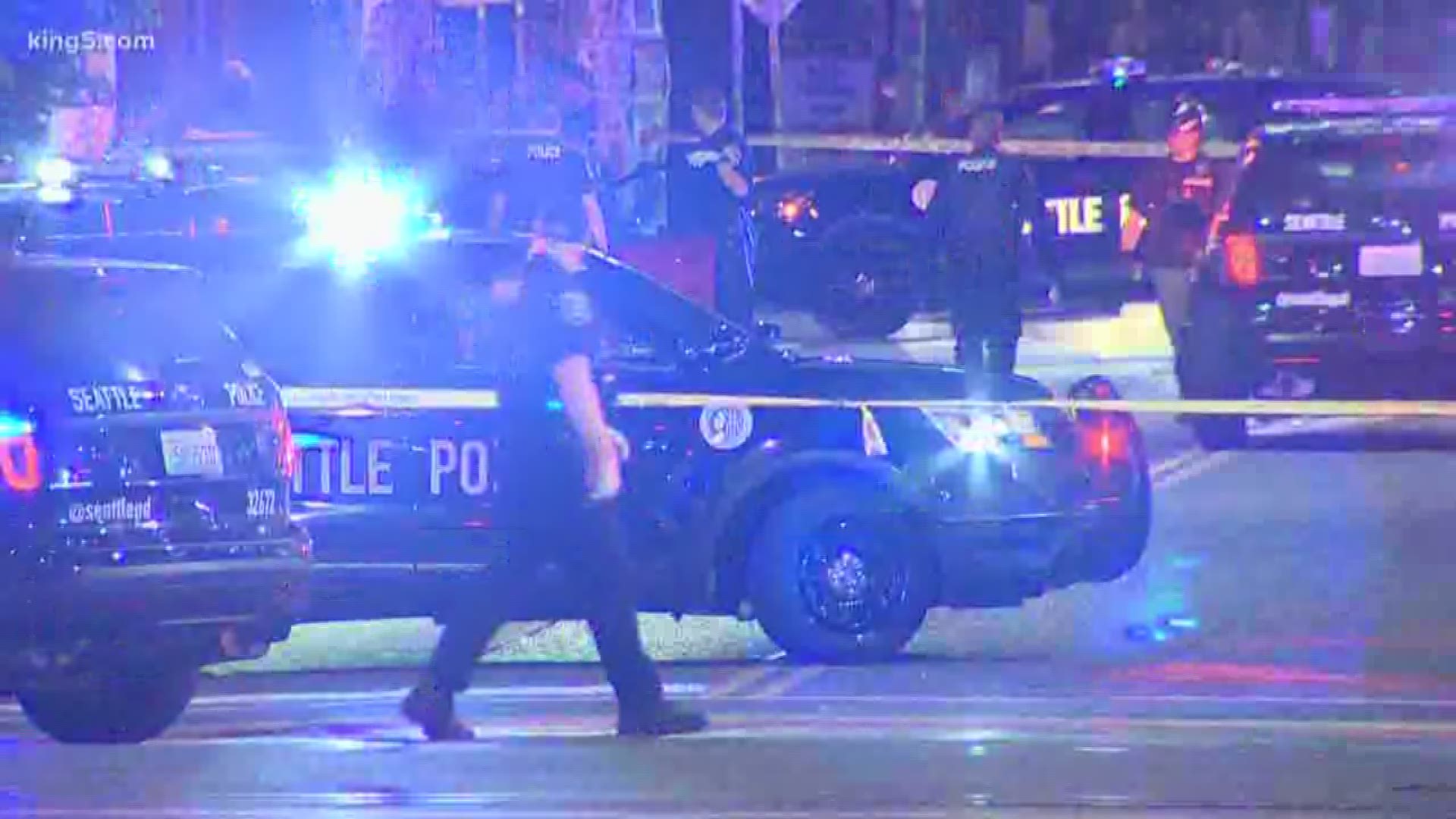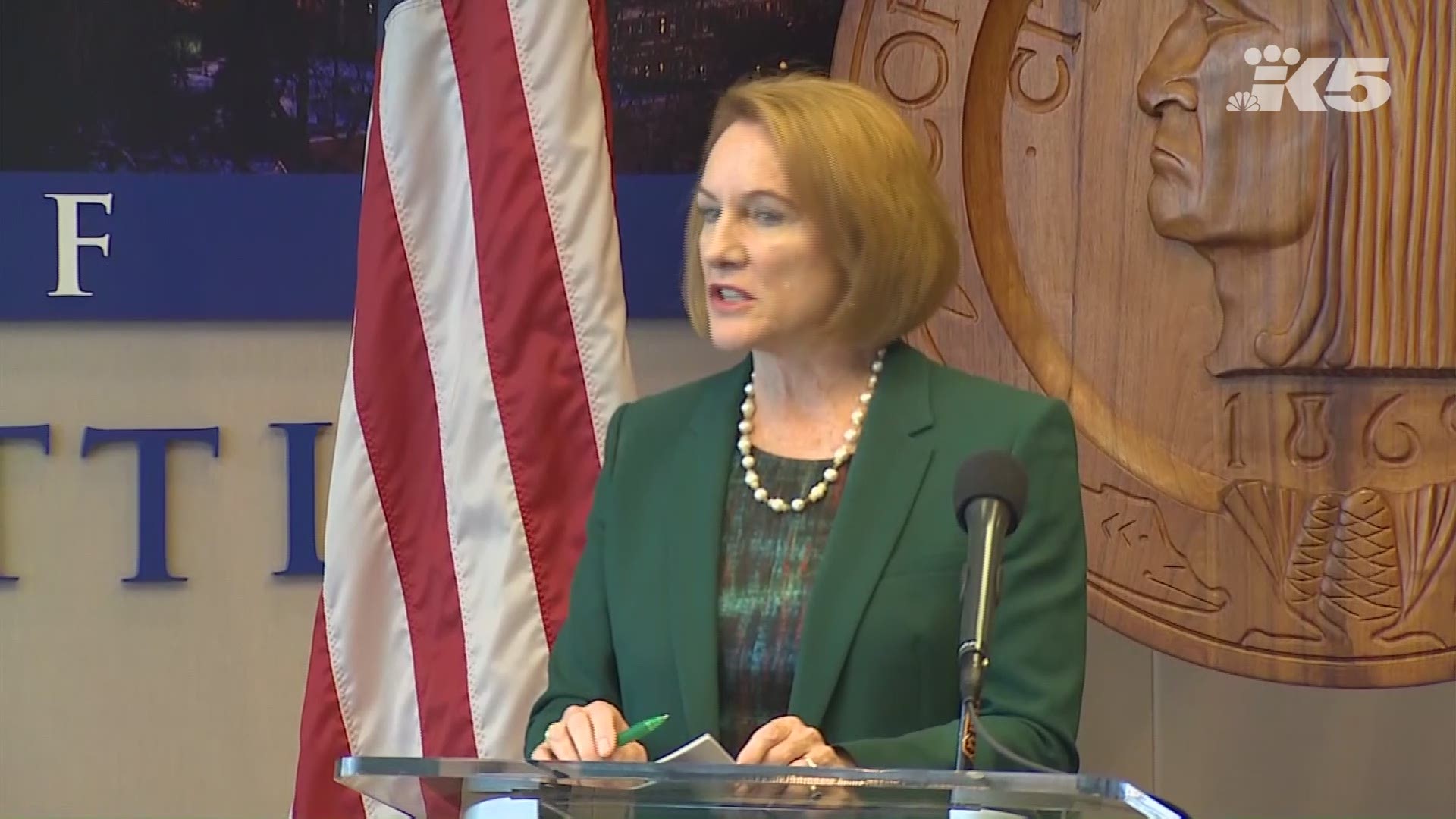The Seattle Police Department has fallen partially out of compliance with a consent decree on police reform.
The department fell out of compliance on the issue of police accountability. It remains in compliance on issues of use of force.
The issue surrounds the city's contract with the police union. U.S. District Court Judge James Robart said the appeal process for fired or disciplined officers needs to be adjusted before the department can be in full compliance.
The department could still meet the January 2020 deadline for the sustainment period, according to the Seattle mayor's office.
Judge Robart is referring to a specific incident when Officer Adley Shepard, who was fired for punching a woman while she was handcuffed, was recommended for reinstatement last year.
Last November, an independent arbitrator ruled that Officer Adley Shepard should "not have been terminated and is to be returned to employment with SPD," the Seattle Police Officer's Guild wrote in a 2018 statement.
The judge has since questioned whether a new contract with the police union would shield police officers from being held accountable for unjustified use of force.
Though labor organizations applauded the contract, the Seattle City Council faced pressure to reject it. Representatives from more than two dozen community groups argued the agreement would undermine police accountability.
The groups said the fight was over specific details in the collective bargaining agreement involving police accountability, such as the 180-day limit on misconduct investigations. The city council previously passed police accountability legislation that fixed the 180-day deadline. The groups worried the agreement brought it back.
“Accountability reforms have not kept up with the other reforms that SPD has made during this consent decree process,” said Judge Anne Levinson (Ret.), an expert for the Seattle Police Commission. “The judge wants them to go back and do what the Seattle Police Commission recommended, which is strengthen those contracts so that they better serve the public.”
The police department has been under a consent decree since 2012, following a federal investigation that found the department was allowing racial profiling and unnecessary use of force.
Seattle Mayor Jenny Durkan said she was overall "heartened" by the ruling, especially that the judge found the department was in compliance with its use of force policies and training.
She acknowledged that Robart raised issue with use of mediators and arbitrators, burden of proof in mediation, and the 180-day deadline. However, Durkan said she wanted to wait until Robart issued his written order next week before determining next steps.
"I really want to see the judge’s order on all three of those things to make sure we’ve made the right record, because I think that when the judge views all of the facts on those issues he will determine that we are in compliance on those issues as well,” Durkan said.
The Seattle Police Officer's Guild said in a statement Wednesday they "will refrain from commenting until we have had an opportunity to review Judge Robart’s order when it is released in written form."
The statement continued, "The Seattle Police Officer’s Guild would like to remind everyone that we have a valid contract (through 2020) that was negotiated in good faith, ratified by our membership and signed into law by Mayor Durkan. SPOG has a long history of negotiating labor agreements with the City of Seattle and many of those agreements involved changes to the accountability/discipline system."
The Department of Justice responded to Wednesday's news with this statement from a spokesperson at the U.S. Attorney's Office:
"As the Court indicated today, the Seattle Police Department has achieved, and has so far sustained, compliance with the requirements of the Consent Decree as set forth in the Court-approved sustainment plan. DOJ will continue to closely monitor the remaining elements of the sustainment plan to ensure that remains the case. With respect to the Court’s discussion of the narrow collective bargaining issue today, we will wait to consider the Court’s written order."


